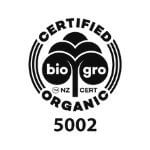Our Coffee & Growers
Directly sourced from passionate farmers who share our commitment to organic excellence and sustainable practices.
Shop Organic CoffeeOrganic Excellence from Source
We specialise in organic speciality coffee which we import directly from growers, mostly in Peru. Peru is ideally suited for speciality coffee with rich organic soils at high altitude and good rainfall. We also import directly from Sumatra and lately India.
Ideal organic growing conditions, altitude, special processing and the caring hands of our growers make our coffee so special. Then we roast and blend different varieties and differently processed coffees to get balanced single origin coffees or for some blends we blend different country of origins.
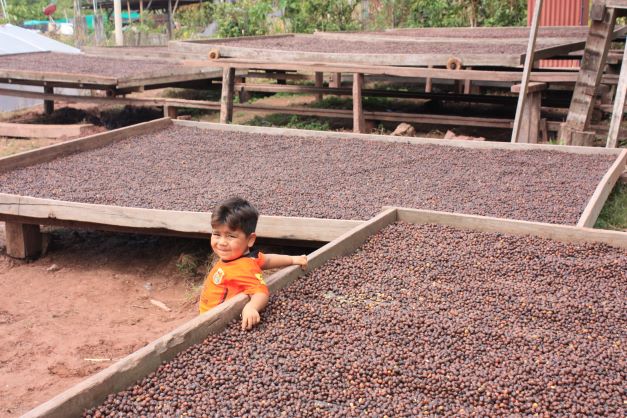

Coffee & Organics
Coffee is originally a shade plant and is perfect for organic agriculture. It is one of the easiest crops for organic growing and with the right companion plantings it can produce a higher income for the grower, better coffee for you and a better environment for all.
IncaFé Organic Coffee's coffee beans are grown in forested ecosystems where native trees, canopy shade, and an abundance of insect and bird life all contribute to healthy plants in fertile soil, producing full-flavoured coffee beans.
Trees stop soil erosion, trap moisture, create stable microclimates, provide continuous compost and nutrition, harbour animals, maintaining a healthy natural balanced ecosystem. The result is healthy, nutritious soil that allows organic coffee plants' roots to grow deeper and absorb more nutrients, yielding slow-grown, full flavoured coffee beans.
The Organic Challenge
The sad bit is that only about 3% of the world's coffee production is organic and many areas are now hard to convert due to soil degradation. However climate change is forcing coffee growers to restore tree covers in some areas. Once the trees are re-established they are only a small step from going fully organic.
Our commitment to organic practices isn't just about better coffee - it's about supporting sustainable farming that protects the environment whilst providing equitable livelihoods for our growers. Every cup you enjoy helps maintain these precious ecosystems for future generations.
Geisha - Nature's Masterpiece
This is a Geisha plant producing the most expensive coffee in the world with flavours that hold between green tea and coffee, with some spectacular notes. Geisha is one of various heirloom species that produce rich flavours and that loves organic conditions.
You can see how the cherries ripen at different times, another reason why they are suited for organics. Due to the trees you cannot machine harvest coffee which then makes organic plantations more suitable for speciality coffees that need to be picked by hand anyway as to select the ripe cherries.
Organic plants in general have deeper roots and get water and nutrition from deeper in the ground. Over the years we have found that the depth in flavour of our coffees is very consistent also between dry and wet, and cool and hot years.
Shop Geisha Coffee
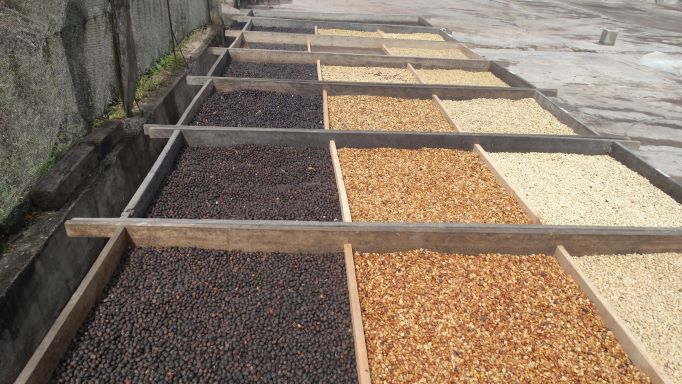
Processing & Varieties
Much of the flavour is created at the farm. When we met Felix Marin in 2006 at the Coopchebi cooperative we straight away started discussing speciality coffees and different processing methods since almost 100% of the Peruvian coffee was just washed coffee at the time.
We guaranteed to buy all his trials at prices that reflected the extra work and Felix loved to look for added value products that fitted the organic growing conditions in much of central Peru.
Natural Process
Dried without washing, creating intense fruit flavours
Honey Process
Dried after removing skin, with sweet mucilage intact
Washed Process
Fermented in tanks with flesh removed, clean bright flavours
Each variety can be subjected to these different processes and suddenly you can have over 20 very differently flavoured coffees from the same farm. There is a lot of work involved and for example natural processed coffee needs to be turned a couple of times a day for up to 30 days!
The Finishing Touch
Although there is a bit of an art to it, and the equipment is important, roasting is pretty straightforward. We don't add anything to the coffee so it is very much a case of ensuring the goodness from the farm is baked the best way.
Once you have the roast profile established, it requires a bit of tweaking providing the green beans are consistent. This is where our long term relationship with the growers kicks in and the coffee being organic ensures that there is little difference between batches and seasons.
We roast each type of coffee separately and blend afterwards. Establishing the blends is of course a bit of an art ensuring flavours of different types of coffee complement each other and fuse together. Each batch is cupped.
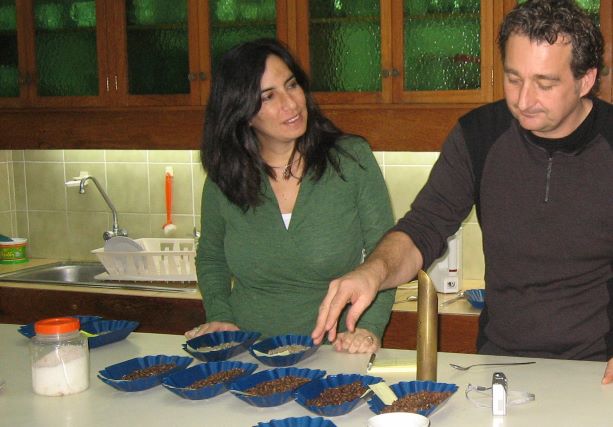
COOPCHEBI Cooperative
Some of our Peruvian speciality coffee still comes from COOPCHEBI in central Peru however in recent years we buy more from the North where there is good Bourbon and Caturra, and from the South where there is rare Tipica.
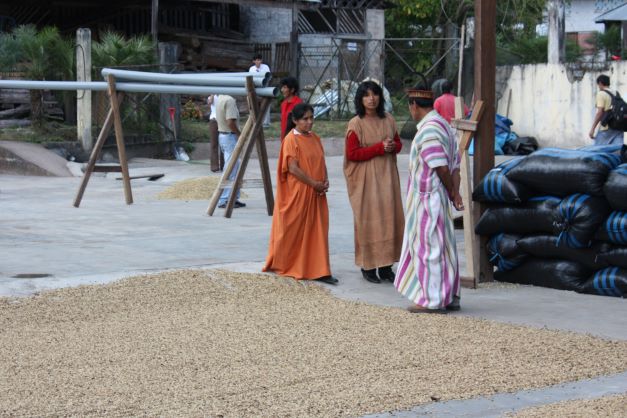
Legacy of Excellence
Coopchebi was formed from a conglomerate of plantations from mostly 6 brothers, plantation workers and a number of cousins in 2001. The original plantation was set up by Hector Marin and his wife Rosa in 1942.
Hector Marin and Rosa establish the original plantation
First grower's group in Peru to export their own coffee
COOPCHEBI officially formed by 6 brothers and cousins
COOPCHEBI continues to lead with energy and vision of offering quality and continuous innovation to conquer new customers and new tastes whilst holding on to their social and environmental principles that happy growers and communities and good environmental conditions create great coffee and good people.
Shop Marin Coffee
